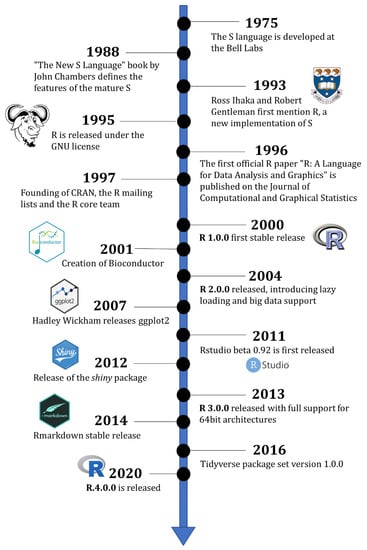The Basic Principles Of Bioinformatics Tutor
The Basic Principles Of Bioinformatics Tutor
Blog Article
What Does Bioinformatics Tutor Do?
Table of ContentsThe Best Strategy To Use For Bioinformatics TutorGetting The Bioinformatics Tutor To WorkTop Guidelines Of Bioinformatics TutorGetting The Bioinformatics Tutor To WorkUnknown Facts About Bioinformatics Tutor
Of the total amount participants involved in the training, 80% were trainees from public greater education and learning organizations, while the staying 20% came from personal institutions. To receive a certificate of participation, pupils were called for to go to a minimum of 90% of the complete training hours. As an outcome of this need, an outstanding 95% of the participants efficiently acquired their certifications, having not only fulfilled the minimum attendance requirements yet also completed all designated activities throughout the training.
Throughout the elevation of the COVID-19 pandemic, particularly between June and August 2020, the project team was charged with organizing specialized training in bioinformatics. This training was especially targeted at pupils from the research group Core for Research in Applied Computer at the Federal College of Pará (UFRA) The adaptation to remote learning systems as a result of the pandemic developed an opportunity to check out new mentor methodologies and digital tools that improved both reach and performance.
This program was designed to give an available yet detailed introduction of Artificial Knowledge techniques, specifically as used in bioinformatics (Bioinformatics Tutor). This virtual layout enabled involvement from students across Brazil, several of whom might not have had the possibility to participate in in-person sessions.
Facts About Bioinformatics Tutor Uncovered
Roughly 50% of the overall training hours were committed to sensible tasks where students built smart versions and applications in an array of scientific domain names, consisting of genes, molecular biology, and ecological data evaluation. These systems allowed pupils to involve in real-time data adjustment, design training, and algorithm experimentation.
The course brought in 80 individuals in overall. Sixty of them were associated with various greater education and learning establishments in the state of Pará, while the remaining twenty originated from organizations situated in five various other Brazilian states. This broad geographical depiction highlighted the nationwide interest in bioinformatics and the expanding demand for specialized skills around. By presenting Artificial Knowledge in a pertinent and sensible context, the campaign offered to connect the gap between concept and real-world application, giving trainees with a solid foundation for future research or employment in the area.
The training effort formed part of a broader scholastic outreach effort recognized as the Bioinformatics when traveling job. This task has, for many years, introduced loads of students to the world of bioinformatics and computational biology. The occasions held under this umbrella campaign have taken location across several areas and years, as weblink summarized in Table 1 (List of occasions, places, years, and overall varieties of students and instructors)
Several of these groups, initially brought with each other by their participation in training events, have considering that gone on to produce independent scientific research in partnership with neighborhood academic organizations. The training not only cultivated clinical thinking within the context of bioinformatics but likewise stimulated collective relationships that prolonged past the training atmosphere.
The Of Bioinformatics Tutor
The exact same team, omitting IH and RR, also acted as tutors for the practical training modules. Funding for the job was offered with the grant 88887.200562/ 2018-00 from CAPES.
The Federal University browse around here of Pará's Workplace of Study (PROPESP/UFPA) also gave financial backing, particularly for the production of the final manuscript. The writers state no financial or industrial disputes of interest that could have affected the research. In addition, all analyses and opinions revealed in this post are entirely those of the writers and do not always show those of their particular establishments, the author, editors, or reviewers associated with the publication process.

Rumored Buzz on Bioinformatics Tutor
From an instructional point of view, the training method made use of in the training was intentionally interactive. Courses were conducted in a fashion that encouraged student engagement and conversation, exceeding memorizing memorization to discover exactly how concepts are created, applied in every day life, and tested in academic settings. The educational approach concentrated on nurturing both solid and struggling pupils, offering individualized assistance, and structure self-confidence through continual mentorship and persistence.

Each team, consisting of roughly 36 participants, was sustained by 3 advisors-- the majority of whom were postdoctoral scientists with specific competence. These coaches not just assisted make the group tasks yet likewise promoted their execution, making sure that each research study concern was both properly Bioinformatics Tutor tough and appropriate. The goal was to supply a naturally sensible context that participants can explore via open-ended purposes and access to curated datasets.
For added insights right into the approach and end results of this project-based discovering approach, viewers are directed to S1 Text, which consists of comprehensive summaries of the pedagogical structure, examination techniques, and task styles made use of in the training sessions.
Top Guidelines Of Bioinformatics Tutor
Of the total amount participants entailed in the training, 80% were pupils from public greater education and learning establishments, while the staying 20% came from exclusive organizations. To qualify for a certification of involvement, students were called for to go to at the very least 90% of the complete training hours. Significantly, past the trainees who registered in the training sessions, 7 seasoned trainers participated in delivering the training courses, while three committed research professors collaborated the overall training process. Roughly 50% of the total training hours were dedicated to useful tasks where pupils developed intelligent designs and applications in an array of scientific domains, including genes, molecular biology, and ecological data evaluation. The training not only promoted scientific reasoning within the context of bioinformatics but additionally sparked joint relationships that extended beyond the training atmosphere.
Report this page